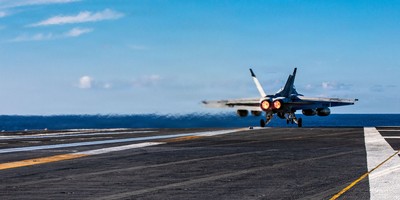With the establishment of the Pentagon's new regional command for Africa, AFRICOM, addressing the complex political and social challenges of the African continent moves from diplomatic afterthought to shrewd long-term effort. The new theater command became operational Oct. 1.
For decades, American diplomats serving in Africa -- particularly sub-Saharan Africa -- referred to their region as "the neglected continent." I recall a conversation in the early 1990s with a U.S. Army officer tasked with supporting military attaches serving in embassies in southern Africa. Over breakfast he lamented the persistent lack of funds and personnel hampering State Department and Pentagon programs. U.S. military command structure reflected the "afterthought" status. Operations and assistance programs for most of Africa were administered by U.S. European Command (USEUCOM). Central Command (CENTCOM) had a chunk of Africa's northeast. Pacific Command (PACOM) was responsible for islands off Africa in the Indian Ocean.
Budgeteers and Cold War strategists made a bottom-line argument for the division. During the Cold War, Africa was an "economy of force" theater, with Europe and northern Asia the geo-strategic focus. Southern Command (SOUTHCOM), responsible for Central and South America, also rated a secondary effort.
Throughout the 1990s the structure remained, despite the Great Congo War (which still simmers, with 4 million to 5 million deaths attributable to the conflict), Rwanda's genocide, al-Qaida's 1998 terror attacks on U.S. East African embassies, the gruesome Ethiopia-Eritrea War and a tangled spectrum of violent conflicts.
Sept. 11 changed the calculus regarding "distant nuisances" in "isolated" Third World regions. The formation of AFRICOM is a political statement by the United States that it learned something from 9-11 and intends to be involved in chaotic corners that international terrorists have used as bases (e.g., Afghanistan). The new command is a developmental aid program nesting within a bare-bones military command. Call it pre-emptive diplomacy -- politically, economically and militarily assisting a region so that it does not degenerate into a battlefield.
Recommended
The headquarters' mission statement emphasizes interagency cooperation. AFRICOM "in concert with other U.S. government agencies and international partners, conducts sustained security engagement ... to promote a stable and secure African environment in support of U.S. foreign policy." Interagency cooperation -- particularly State Department integration -- is absolutely essential. That's why AFRICOM's deputy commander is a career Foreign Service officer.
People understand the role of soldiers in warfare, but in 21st century struggles where economic and political development are determinative, an arborist at the Department of Agriculture and a Commerce Department trade consultant can be powerful contributors to "Unified Action."
"Unified Action" is a rather dry term for a very important concept -- coordinating and synchronizing every "tool of power" America possesses (not just military power) to achieve a political end like winning a war against terrorists who hijack economically and politically fragile nations.
CENTCOM's Coalition Joint Task Force-Horn of Africa (CJTF-HOA) is a working model for AFRICOM. When I visited CJTF-HOA's headquarters in Djibouti in 2005, my escort officer, Marine Col. Craig Huddleston, described his job as "waging peace" in a very difficult place plagued by war, poverty, al-Qaida and disease. Poverty may not create international terrorists, but poverty, social turmoil, starvation, lack of infrastructure and weak political systems attract them. Africa and the Horn suffer from all of these afflictions, which is why CJTF-HOA's operations included police training, developmental assistance, intelligence cooperation and medical aid.
The deep challenge of "sustained security" is fostering and reinforcing stable and just economic, political and social systems. This is an incremental strategy. It is also a very smart strategy if Congress and future American presidential administrations have the intelligence and tenacity to support it.

























Join the conversation as a VIP Member